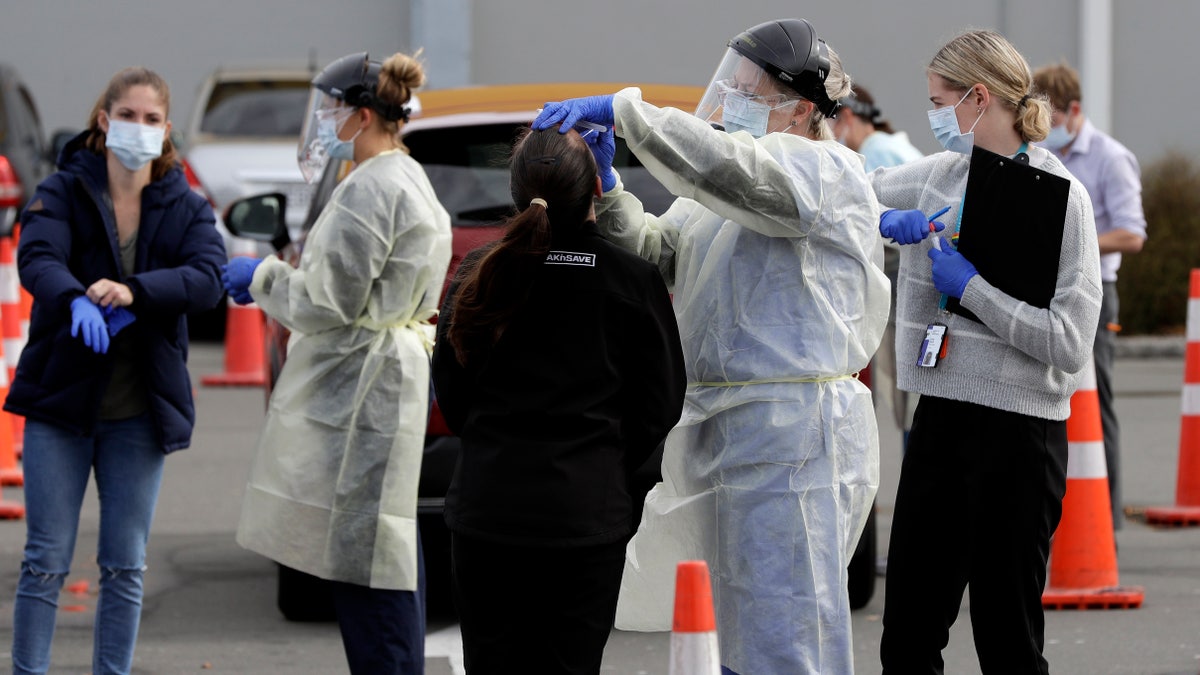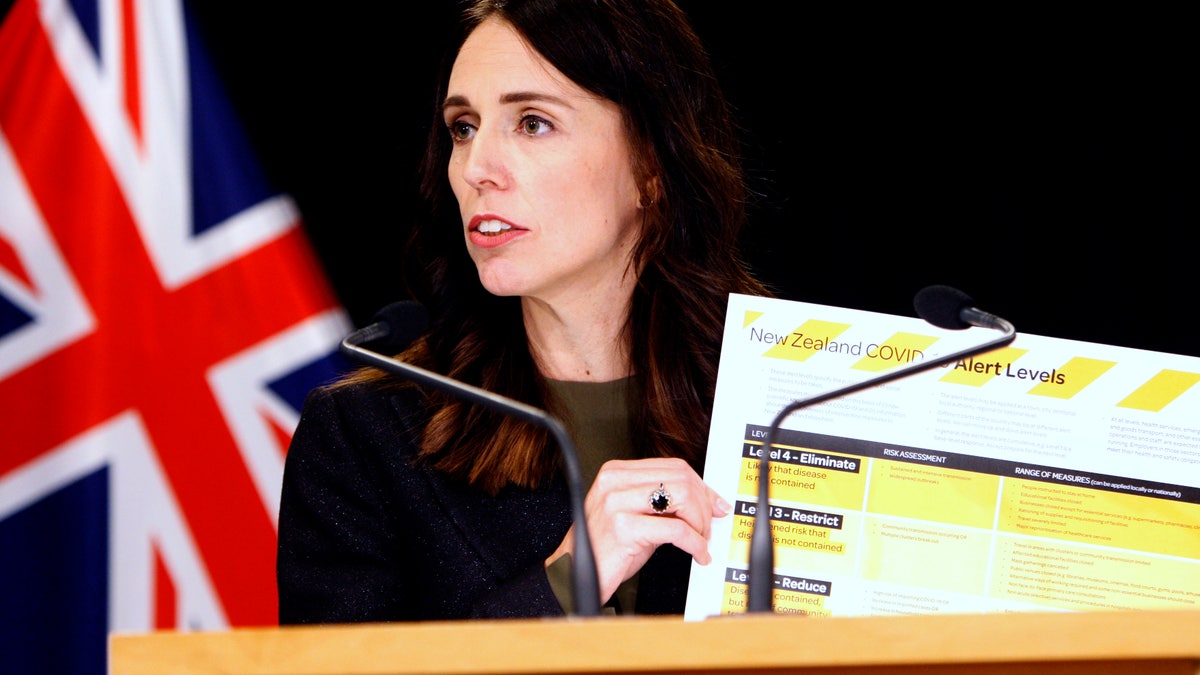What long-term effects does coronavirus have on the human body?
Family physician Dr. Jennifer Caudle weighs in.
Get all the latest news on coronavirus and more delivered daily to your inbox. Sign up here.
New Zealand is inching closer toward its goal of doing something its prime minister says “no other country has achieved” -- completely eliminating the coronavirus.
The island nation of 5 million people has so far avoided a widespread outbreak, as new cases have dwindled from a peak of about 90 per day in early April to just five on Tuesday. Prime Minister Jacinda Ardern placed the country under a strict lockdown in late March, when only about 100 people had tested positive for the new virus. Only 13 have died from it since.
"We have the opportunity to do something no other country has achieved: elimination of the virus," Ardern told reporters last week. “But it will continue to need a team of 5 million behind it.”
CLICK HERE FOR FULL CORONAVIRUS COVERAGE

Medical staff test shoppers at a pop-up community COVID-19 testing station at a supermarket parking lot in Christchurch, New Zealand, on Friday. (AP)
Under the current lockdown, schools are closed and people working nonessential jobs can leave home only for groceries or exercise. Google mobility data indicates there has been high compliance.
Ardern on Monday announced the country would extend lockdown measures for another week before slightly easing some work restrictions to help restart the economy. Most of the social restrictions, though, will remain in place.
New cases are likely when New Zealand eventually reopens its borders, but questions remain about how well prepared its health system is to implement effective contact tracing should a widespread outbreak occur.
WHO CAUTIONS AGAINST RUSH TO EASE CORONAVIRUS RESTRICTIONS, WARNS OF RESURGENCE

New Zealand Prime Minister Jacinda Ardern holds up a card showing a new alert system for COVID-19. (AP)
Even if New Zealand does purge itself of the virus, the effects will linger. Before the outbreak, tourism was booming. About 4 million people visited each year, drawn by stunning scenery and the lure of adventure sports. The industry employed more than 300,000 people and accounted for about 10 percent of New Zealand's entire economy.
“It's been devastating. No question at all,” Stephen England-Hall, the chief executive of Tourism New Zealand, told The Associated Press. “No one can really plan to go from 100 percent to zero in three days.”
A study by the Organization for Economic Co-operation and Development found that because of its reliance on tourism, New Zealand's economy could initially be one of the hardest-hit by the coronavirus among developed nations.
New Zealand’s government, which came into the crisis with its books in relatively good shape, has been handing out billions of dollars in temporary wage subsidies to try and prevent mass unemployment. More than half the nation's workforce has suddenly become reliant on government handouts.
CLICK HERE TO GET THE FOX NEWS APP
One of the most symbolic casualties of the outbreak has been Air New Zealand. The airline had been a source of pride for many as it expanded internationally and won industry awards. In a series of frank updates, Chief Executive Greg Foran described how the carrier had reduced flights by 95 percent and would need to cut its workforce by at least 3,750.
England-Hall says New Zealand – once it overcomes the coronavirus -- will look to first rebuild the domestic tourism market. He added that being virus-free could eventually become a selling point abroad for the country.
The Associated Press contributed to this report.

